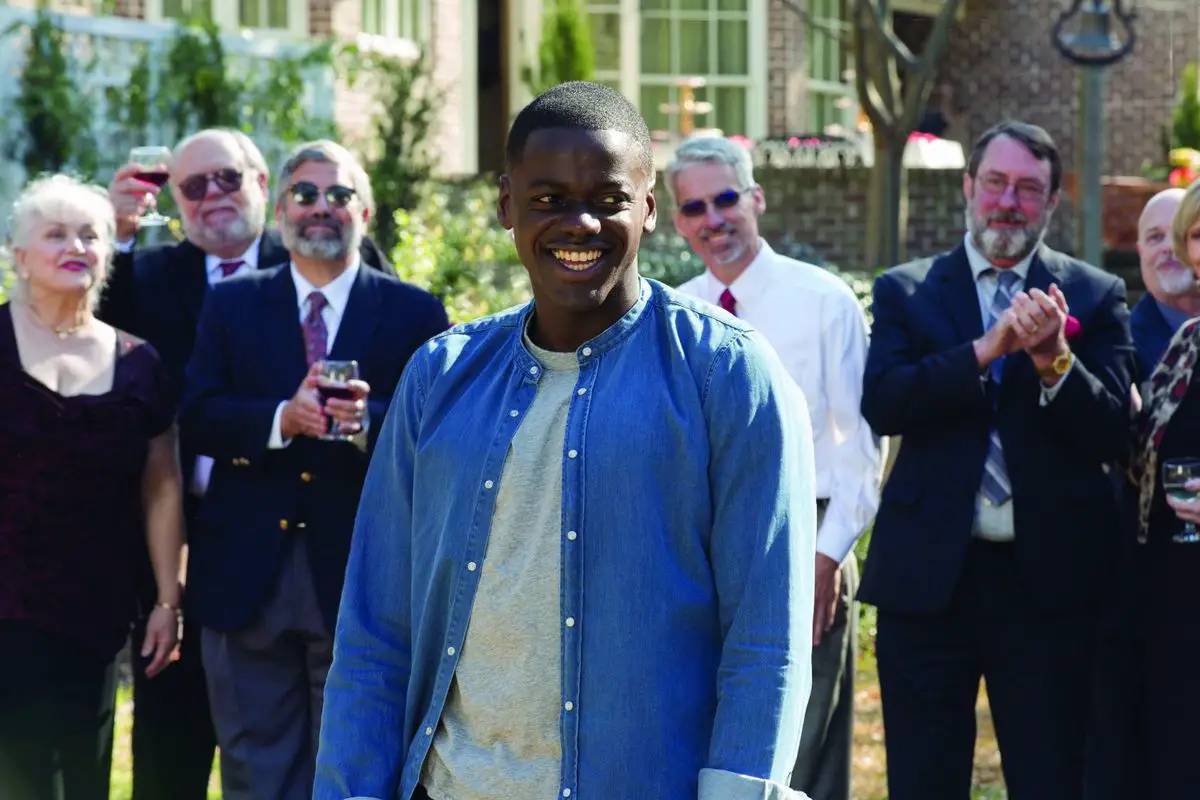I must confess, when it comes to horror movies, or honestly anything remotely fear-inducing, I am a scaredy-cat. My heart races when I hear creaks and bumps in the night. I once went to a haunted house with a group of friends, and I had to spend the entire time holding on to one of my friends’ hands to make it through. Whenever I see or hear something even remotely frightening, my immediate reaction is to run away.
Probably the scariest piece of media that I have ever made it through is Netflix’s “Stranger Things,” which, though a brilliant series, is really not that scary. Earlier this summer, I watched “The Invisible Man,” which is also not that scary. But I couldn’t sleep that night; it haunted me for weeks.
As it turns out, I am not the only one to experience such a volatile reaction to horror movies and shows. PJ Vogt, the host of Gimlet Media’s podcast “Reply All,” feels exactly the same way.
How do I know that Vogt is also a scaredy-cat? Well, he’s not exactly shy about it. This summer, along with “Reply All” co-host Alex Goldman, Vogt started a podcast that is directly geared toward people like us: “The Scaredy Cats Horror Show.”
“The Scaredy Cats Horror Show” adheres to a very specific premise. Basically, Goldman, a self-proclaimed horror aficionado, comes up with a list of horror movies for the scaredy-cat Vogt to watch in succession.
The idea is that by watching the movies, Vogt will gradually become desensitized to the scary aspects of horror movies, and he will eventually be able to watch culturally relevant works that he has had to skip — in particular, Jordan Peele’s 2017 film, “Get Out.” Each episode of the podcast is based on Vogt’s reaction to one — or in the case of Episode 4, two — of the scary movies that Goldman has picked out.
Vogt and Goldman are both invested in figuring out if such desensitization is actually possible. “Together, they want to find out if it’s possible to become a person who enjoys fear,” reads the podcast’s website.
But the list of movies that Goldman comes up with does not grant Vogt the luxury of a slow immersion into the world of horror. The first movie that Vogt is required to watch is none other than William Friedkin’s 1973 horror classic, “The Exorcist.” Next up is another classic film, Wes Craven’s “The Nightmare on Elm Street,” followed by Ridley Scott’s “Alien.”
Next, with the input of guest host Carmen Maria Machado, Goldman decides to hit Vogt with the one-two punch of Ari Aster’s “Hereditary” and “Midsommar” as the final horror movie requirements before Vogt can finally enjoy “Get Out.”
Beyond simply watching the movies from beginning to end, Vogt has to adhere to a strict code of horror movie watching conduct, imposed by the podcast’s first guest, Jason Mantzoukas. The “Mantzoukas Rules,” as the hosts affectionately coined them, involve watching the movies with the lights out, alone, at night and with limited distractions. Vogt agrees extremely reluctantly.
I don’t think I could do what Vogt did. Even looking at images from the movies that are discussed in the podcast makes me feel the tingles of fright. While listening to Vogt and Goldman describe some of the scenes from “Hereditary,” I experienced visceral fear. The audio clips put me over the edge, and I had no choice but to skip forward.
Despite the moments of mild terror, though, I truly enjoyed “The Scaredy Cats Horror Show,” primarily because it is essentially just a podcast where smart people discuss films. Machado’s commentary on Aster’s stylistic choices and narrative exposition in “Hereditary” as opposed to “Midsommar,” and why “Midsommar” makes more sense as a cohesive piece of art, speaks to insights that I still think about when consuming other films and literature.
Similarly, in the fifth and final episode of the podcast, guest host Branden Jacobs-Jenkins sheds light on the intricacies of the not-so-subtle racial commentary in “Get Out,” especially in terms of the psychology of the movie’s main character, Chris, played by Daniel Kaluuya.
Though it brings up a variety of broader questions about human nature and the production and appeal of the horror movie industry, one of the podcast’s intellectual inquiries interests me in particular: What makes things so scary? In other words, what components of horror movies are especially successful in making an audience feel fear?
For me, it’s almost every aspect of horror as a genre — the suspense, the twistedness of the minor and major deviations from what is considered normal and foundational in daily life and the disturbing visual and auditory imagery. However, throughout “The Scaredy Cats Horror Show,” the hosts give words to specific elements that make each individual movie so horrifying.
In “The Exorcist,” for example, Vogt postulates that it is the parental drama and the terror of seeing a daughter that is unable to be saved despite the best efforts of her mother that makes the audience feel so deeply unsettled. In the thrasher film, “A Nightmare on Elm Street,” it is the surprises and suspense. In “Alien,” it is the visceral, corporeal horror of being possessed by a strange being. The list goes on.
To me, these things all seem equal in terms of how horrifying they are, with a slight exception for bodily horror, which disturbs me somewhat less. But it strikes me as a stimulating exercise to discern what makes a movie scary, and to potentially separate the formulaic scariness from the sensation of fear that I experience as a viewer.
And for Vogt, it seems to work. He certainly struggles to make it through the earlier movies, as evidenced by his testament to his own fear as well as the video recordings of his reactions to certain scenes that are included in the podcast. But he eventually seems to become somewhat desensitized to the movies, and he even describes enjoying “Midsommar” and “Get Out” as holistic films.
Has Vogt’s success persuaded me to try a similar tactic? Honestly, not really. Since listening to the podcast itself caused me fear and distress, I probably won’t embark on a horror movie journey anytime soon. That being said, I am interested in watching a few films for the same reason as Vogt — for their cultural relevance as pieces of art and social commentary.
This is my current list of horror movies that I would like to watch at some point: “Midsommar,” “Get Out” and Bong Joon-ho’s “Parasite,” which I realize is actually categorized as a thriller. But unlike Vogt, I will not be adhering to the Mantzoukas Rules. I will be watching with the lights on, in the company of friends and with frequent bathroom breaks. No exceptions.


















